
Aug 10
2025
9AM-11:50AM PDT
2025
9AM-11:50AM PDT
9:00 am - 9:20 am
“Awakening the Past: Rediscovering the Indigenous Culture of the Cape Through Yoga and Empowerment”
20 mins
Courtney will discuss her integration of Indigenous knowledge with yoga by emphasizing the importance of honoring the land and its cultural significance. She will explore the process of how she aims to educate her community on decolonizing both land and culture, highlighting the historical context that shapes contemporary realities. Through the practice of yoga, she will demonstrate how mindfulness can empower individuals to better understand their present circumstances and take control of their future.
Read MoreRead Less
Can women practice haṭha-yoga?
Presiding: 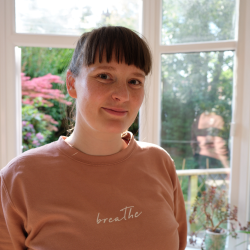 Amelia Wood
Amelia Wood
 Amelia Wood
Amelia WoodThis panel explores the roles and representations of women in the history and practice of yoga, examining both premodern and modern contexts. The first presentation investigates the extent to which women may have engaged in yoga practices in premodern India. By reading early haṭha yoga texts against the grain, it highlights how women’s participation, though not explicitly prescribed, might be uncovered through a nuanced analysis of textual sources. This approach challenges the traditional narratives that often exclude women from the historical record of yoga.
The second presentation shifts to modern South Africa, tracing the history of asana yoga from its introduction in the 1960s by white women who trained abroad with B.K.S. Iyengar. It examines how yoga became an elite practice dominated by white women, reflecting broader issues of race, class, and accessibility in a post-apartheid society. The paper also considers the contributions of the Indian diaspora to South African yoga and questions how inclusive contemporary yoga spaces truly are. Together, these presentations illuminate the complex intersections of gender, culture, and power in yoga’s history and in contemporary practice.
Read MoreRead LessThe second presentation shifts to modern South Africa, tracing the history of asana yoga from its introduction in the 1960s by white women who trained abroad with B.K.S. Iyengar. It examines how yoga became an elite practice dominated by white women, reflecting broader issues of race, class, and accessibility in a post-apartheid society. The paper also considers the contributions of the Indian diaspora to South African yoga and questions how inclusive contemporary yoga spaces truly are. Together, these presentations illuminate the complex intersections of gender, culture, and power in yoga’s history and in contemporary practice.
9:50 am - 10:10 am
“Yoga, Gender, and Race in Contemporary South Africa”
20 mins
The documented history of asana yoga in South Africa goes back to the 1960s, when a group of white women from the province of Kwa-Zulu Natal (which used to hold the largest Indian population outside of the subcontinent before being overtaken by the United States) traveled outside the country to the island of Mauritius and the neighbouring state of Botswana to learn from BKS Iyengar. They began to teach in home studios and gradually grew a student base among white female contemporaries, who became the major demographic of yoga practitioners post-democracy and into the modern age. While this is not entirely different from the yoga practicing population in the Global North, in a country where the majority of the population is of colour, it highlights an elitism based on race and class and raises questions about accessibility, inclusion and the wellness gap in a developing country. In this paper, Firdose will consider the practices of health and healing across a range of South African cultures, with a focus on the Indian diaspora and consider to what extent they are represented in contemporary yoga.
Read MoreRead Less
Why is the academic study of yoga so destabilizing for practitioners?
Presiding: 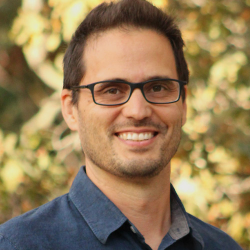 Christopher Jain Miller
Christopher Jain Miller
 Christopher Jain Miller
Christopher Jain MillerThis panel examines the intersection of yoga scholarship and practice, exploring the transformative and destabilizing effects of engaging with academic research on yoga for yoga practitioners. The first presentation reflects on the challenges and opportunities of democratizing yoga scholarship, sharing insights from workshops on the Yoga Sūtra with local teachers and practitioners. These sessions aimed to bridge the gap between academia and practice, fostering a reciprocal exchange of knowledge while addressing the destabilization that new research can cause.
The second presentation delves into the personal and professional impact of pursuing academic studies on yoga practitioners, based on interviews with yoga teachers and MA students. It reveals how academic research can disrupt preexisting beliefs about yoga, leading to profound self-reflection and shifts in teaching and practice. Through personal narratives, the presenter frames destabilization as a path to liberation, ultimately resulting in renewed perspectives and inspiration. Together, these presentations underscore the need for deeper dialogue between academic and practitioner communities.
Read MoreRead LessThe second presentation delves into the personal and professional impact of pursuing academic studies on yoga practitioners, based on interviews with yoga teachers and MA students. It reveals how academic research can disrupt preexisting beliefs about yoga, leading to profound self-reflection and shifts in teaching and practice. Through personal narratives, the presenter frames destabilization as a path to liberation, ultimately resulting in renewed perspectives and inspiration. Together, these presentations underscore the need for deeper dialogue between academic and practitioner communities.
10:40 am - 11:00 am
“Bridging the gap between yoga scholarship and practice: explorations in democratising knowledge”
20 mins
Martha Henson and Ruth McNeil have been examining the impact of pursuing an MA in yoga studies on individuals with a background in yoga teaching. Martha will be presenting our joint early findings from interviews with MA students and yoga teachers that reveal a disconnection between scholarship and practice. This pursuit of yoga studies with the academy appears to destabilise some students, fundamentally challenging their existing perspectives and understanding of yoga. Many of these students end up feeling the need to renegotiate their yoga practice and teaching, or even to leave it altogether, unable to reconcile their original training with what they have learned in the MA.
We will share our own experiences of undergoing this process, both the initial disorientation it caused and the struggle to rationalise and integrate this new understanding. But also how destabilisation eventually became liberation. We will also consider how the destabilisation effect could or should be recognised and factored into the sharing of yoga scholarship. What can or should yoga practitioners and teachers do with the research findings of yoga scholarship? How could this be a genuinely collaborative process, potentially bringing insight back into academia as well? We will share what we learned from our attempts to do this in workshops with small groups of local yoga teachers and enthusiasts on Patanjali’s Yoga Sutra.
Read MoreRead LessWe will share our own experiences of undergoing this process, both the initial disorientation it caused and the struggle to rationalise and integrate this new understanding. But also how destabilisation eventually became liberation. We will also consider how the destabilisation effect could or should be recognised and factored into the sharing of yoga scholarship. What can or should yoga practitioners and teachers do with the research findings of yoga scholarship? How could this be a genuinely collaborative process, potentially bringing insight back into academia as well? We will share what we learned from our attempts to do this in workshops with small groups of local yoga teachers and enthusiasts on Patanjali’s Yoga Sutra.
11:00 am - 11:20 am
“Yoga Studies in Five Minutes”
20 mins
The newly-published Yoga Studies in Five Minutes (Wildcroft and Sojkova 2025) provides an accessible guide to the diverse and growing field of research into yoga as a social, historical and cultural phenomenon. Both leading scholars and innovative researchers offer 60 brief responses to questions that offer insights into the study of yoga, such as: Who was the first teacher of yoga? Is yoga Indian? What is paramparā? Are there holy texts in yoga? What are the goals of yoga? Why do yogis hold their breath?
The collection covers ancient history, modern developments, and contemporary issues, considers the diverse practices and philosophies of yoga in a range of contexts, and uses a range of approaches, from philology to anthropology to art history. The book is an ideal starting point for both independent study and the classroom.
For this panel, Theo and Barbora will introduce the book, describe the rationale for the ‘In Five Minutes’ series, and discuss the process of producing the book. This will lead to a broader discussion of the costs and opportunities of disseminating accessible, high-quality research to yoga practitioners via print, online media and taught courses.
Wildcroft, Theo, and Barbora Sojkova. 2025. Yoga Studies in Five Minutes (Equinox Publishing: Sheffield).
Barbora Sojkova holds a DPhil in Asian and Middle Eastern Studies (Sanskrit) from Balliol College, University of Oxford, where her research focused on human-animal relationships in Vedic Sanskrit literature. She is a qualified librarian (PgDip in Library and Information Studies, UCL, 2024) and has previously worked at All Souls College and the Bodleian Library, Oxford. She was a postdoctoral researcher in the MANTRAMS Project at the University of Oxford, working on the history of mantra in Vedic. She is also a certified yoga teacher and trainer focusing on history and philosophy of yoga.
Theo Wildcroft, PhD is a yoga teacher-trainer, writer and scholar who is interested in the democratization of yoga post-lineage, somatic literacy, meaning-making and the counter-culture. She is an Associate Lecturer at the Open University, UK, Visiting Lecturer in Dharmic Worldviews at the University of Chester, Fellow of the HEA, former Coordinator of the SOAS Centre of Yoga Studies, editor of the BASR Bulletin, an honorary member of the British Wheel of Yoga, member of the IAYT, a continuing professional development trainer and consultant for Yoga Alliance (E-RYT® 500, YACEP®), and Council Member for the American Yoga Council. She is the author of Post-lineage yoga: from guru to #metoo, co-writer of Leading Safe and Simple Yoga Nidras (coming soon), editor of Religion and the Sense of Self (also coming soon), and co-editor of The Yoga Teachers’ Survival Guide and Yoga Studies in Five Minutes.
Read MoreRead LessThe collection covers ancient history, modern developments, and contemporary issues, considers the diverse practices and philosophies of yoga in a range of contexts, and uses a range of approaches, from philology to anthropology to art history. The book is an ideal starting point for both independent study and the classroom.
For this panel, Theo and Barbora will introduce the book, describe the rationale for the ‘In Five Minutes’ series, and discuss the process of producing the book. This will lead to a broader discussion of the costs and opportunities of disseminating accessible, high-quality research to yoga practitioners via print, online media and taught courses.
Wildcroft, Theo, and Barbora Sojkova. 2025. Yoga Studies in Five Minutes (Equinox Publishing: Sheffield).
Barbora Sojkova holds a DPhil in Asian and Middle Eastern Studies (Sanskrit) from Balliol College, University of Oxford, where her research focused on human-animal relationships in Vedic Sanskrit literature. She is a qualified librarian (PgDip in Library and Information Studies, UCL, 2024) and has previously worked at All Souls College and the Bodleian Library, Oxford. She was a postdoctoral researcher in the MANTRAMS Project at the University of Oxford, working on the history of mantra in Vedic. She is also a certified yoga teacher and trainer focusing on history and philosophy of yoga.
Theo Wildcroft, PhD is a yoga teacher-trainer, writer and scholar who is interested in the democratization of yoga post-lineage, somatic literacy, meaning-making and the counter-culture. She is an Associate Lecturer at the Open University, UK, Visiting Lecturer in Dharmic Worldviews at the University of Chester, Fellow of the HEA, former Coordinator of the SOAS Centre of Yoga Studies, editor of the BASR Bulletin, an honorary member of the British Wheel of Yoga, member of the IAYT, a continuing professional development trainer and consultant for Yoga Alliance (E-RYT® 500, YACEP®), and Council Member for the American Yoga Council. She is the author of Post-lineage yoga: from guru to #metoo, co-writer of Leading Safe and Simple Yoga Nidras (coming soon), editor of Religion and the Sense of Self (also coming soon), and co-editor of The Yoga Teachers’ Survival Guide and Yoga Studies in Five Minutes.
_orig)
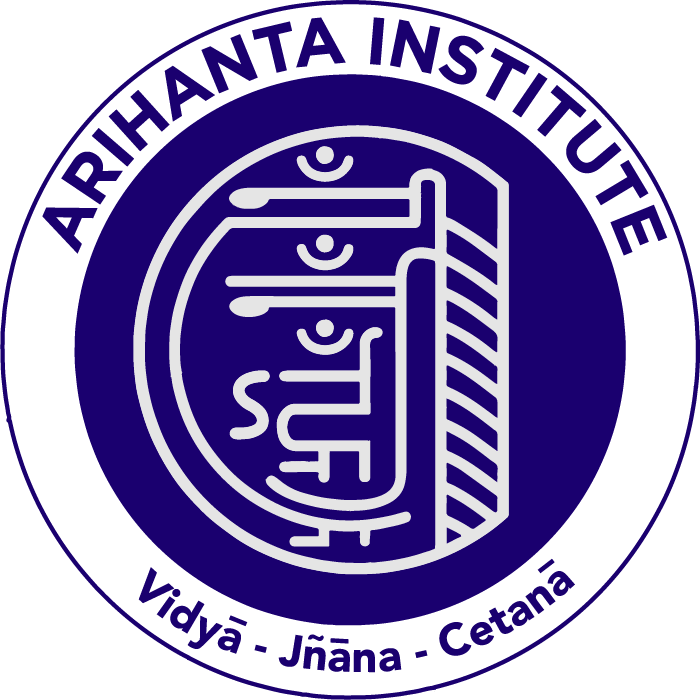
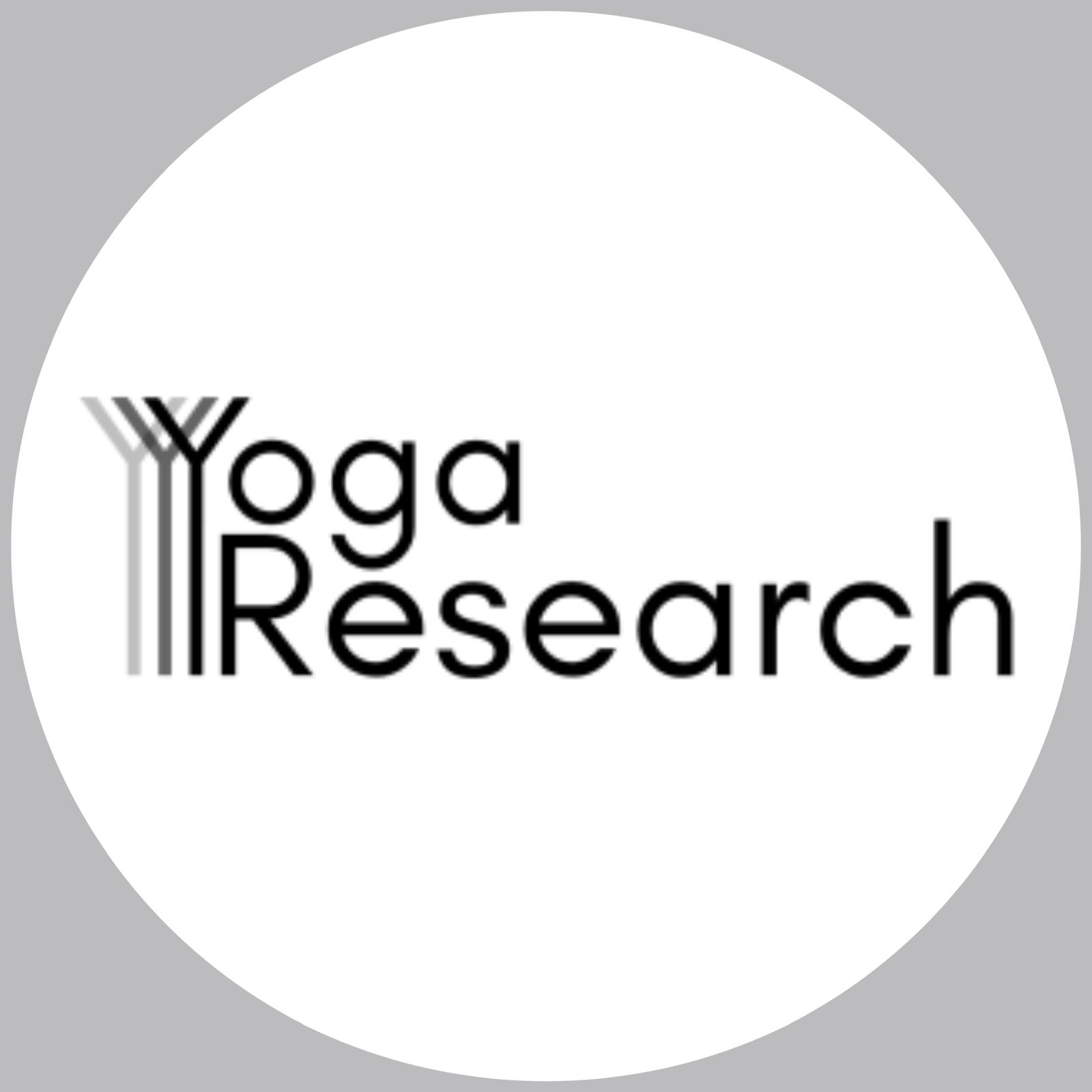
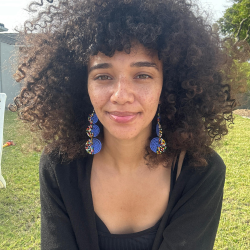 Keynote Speaker: Courtney Lee Williamson
Keynote Speaker: Courtney Lee Williamson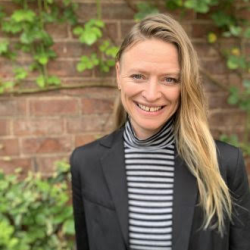 Panelist: Ruth Westoby
Panelist: Ruth Westoby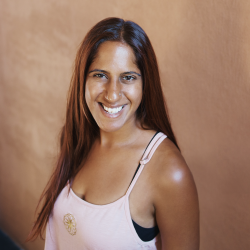 Panelist: Firdose Moonda
Panelist: Firdose Moonda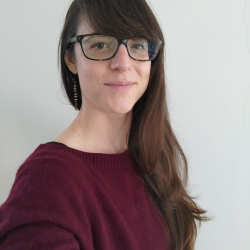 Panelist: Martha Henson
Panelist: Martha Henson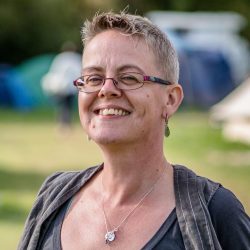 Panelist: Theodora Wildcroft
Panelist: Theodora Wildcroft